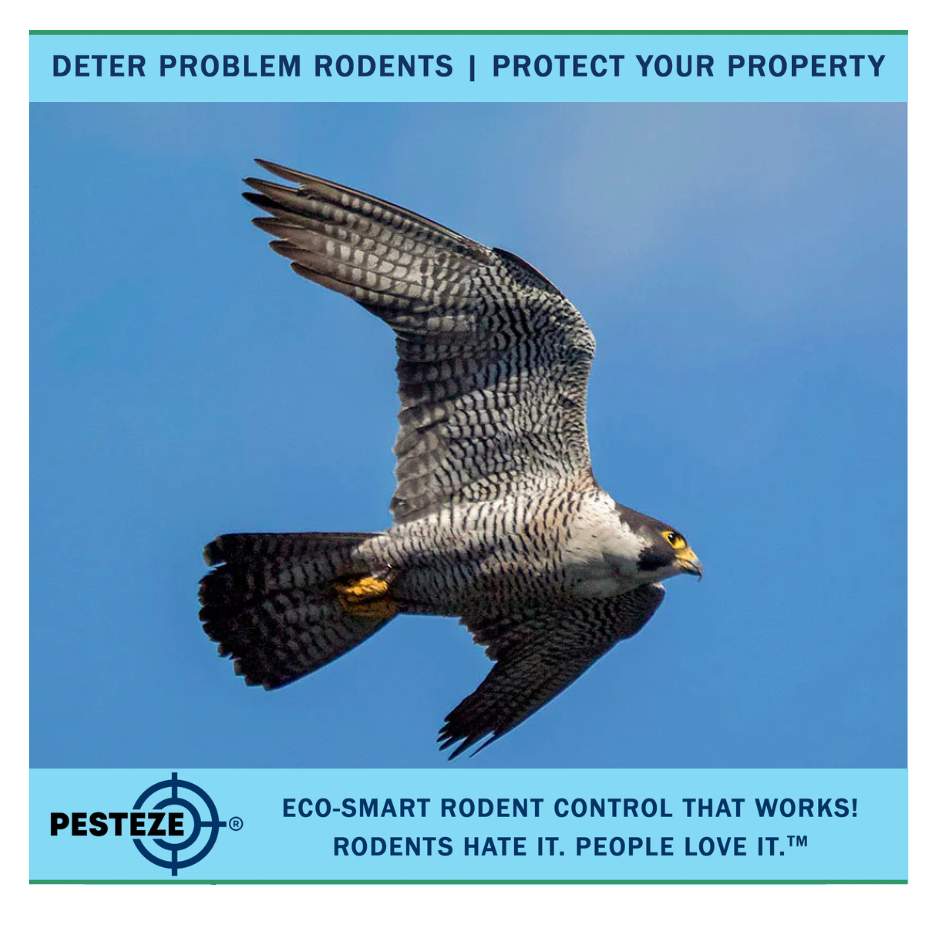HOW TO DETER FALCONS: KEEP THESE RAPTORS AWAY FROM YOUR PROPERTY WITHOUT HARM

HOW TO DETER FALCONS: KEEP THESE RAPTORS AWAY FROM YOUR PROPERTY WITHOUT HARM
SUMMARY
Falcons, though majestic, can pose a threat to smaller birds, pets, and even property. By using a combination of visual deterrents, reflective surfaces, sound devices, and protective barriers, you can discourage falcons from frequenting your space in a humane and effective way.
FEATURES
- Predator Decoys: Place large bird or owl decoys to intimidate falcons.
- Reflective Surfaces: Use reflective tape or objects to disrupt falcons' focus.
- Noise Deterrents: Install sound devices to create noises that make falcons uncomfortable.
- Protective Netting: Use netting around areas where falcons tend to perch or hunt.
- Remove Prey Sources: Limit food sources like small animals and birds that attract falcons.
- Frequent Human Activity: Regular human presence can discourage falcons from settling.
GUIDE DESCRIPTION
Falcons are awe-inspiring birds of prey, known for their incredible speed and sharp hunting skills. However, their presence near homes, farms, or aviaries can be problematic, especially if they prey on small birds, livestock, or pets. If you're looking to deter falcons humanely, several proven strategies can help.
One of the most effective methods is using predator decoys. Falcons are territorial, and placing decoys of larger birds like eagles or owls around your property can trick them into thinking the area is already occupied by another predator. Moving the decoys periodically keeps them effective by simulating real predator activity.
Reflective surfaces are another simple yet powerful falcon deterrent. Falcons are highly visual creatures, and reflective tape, mirrors, or shiny objects that catch and scatter light can confuse and deter them. These items create an unpredictable environment that falcons find uncomfortable.
Noise deterrents can also play a key role. Motion-activated sound devices that emit sudden loud noises or predator calls can frighten falcons away. Wind chimes or ultrasonic bird deterrents are other options, though sudden noises are typically more effective in scaring them off.
If falcons are perching or hunting in a specific area of your property, consider installing protective netting. For example, if you have an aviary, chicken coop, or outdoor pet enclosure, netting can act as a physical barrier, keeping falcons from getting to their potential prey.
It's important to remember that falcons are drawn to areas where their prey is abundant. Therefore, removing prey sources such as small birds, rodents, or other wildlife that may attract falcons is essential. Keep your property clean, and avoid feeding birds or leaving pet food outdoors.
Finally, frequent human activity is another deterrent. Falcons prefer undisturbed, quiet spaces for hunting and roosting. By regularly visiting the areas where falcons tend to linger, making noise, or simply being present, you can create an environment that feels less safe for them.
With these humane strategies, you can successfully deter falcons from your property while maintaining respect for these powerful birds.
- Tags: Bird Control Guide
- Maanas Mehta


Comments 0